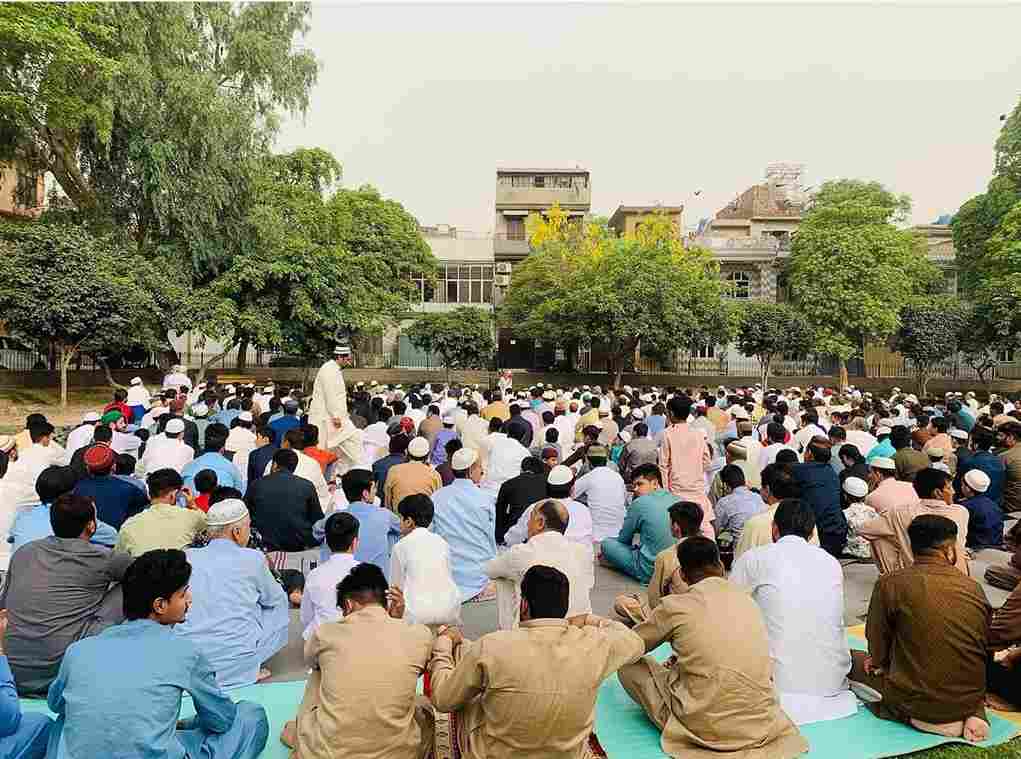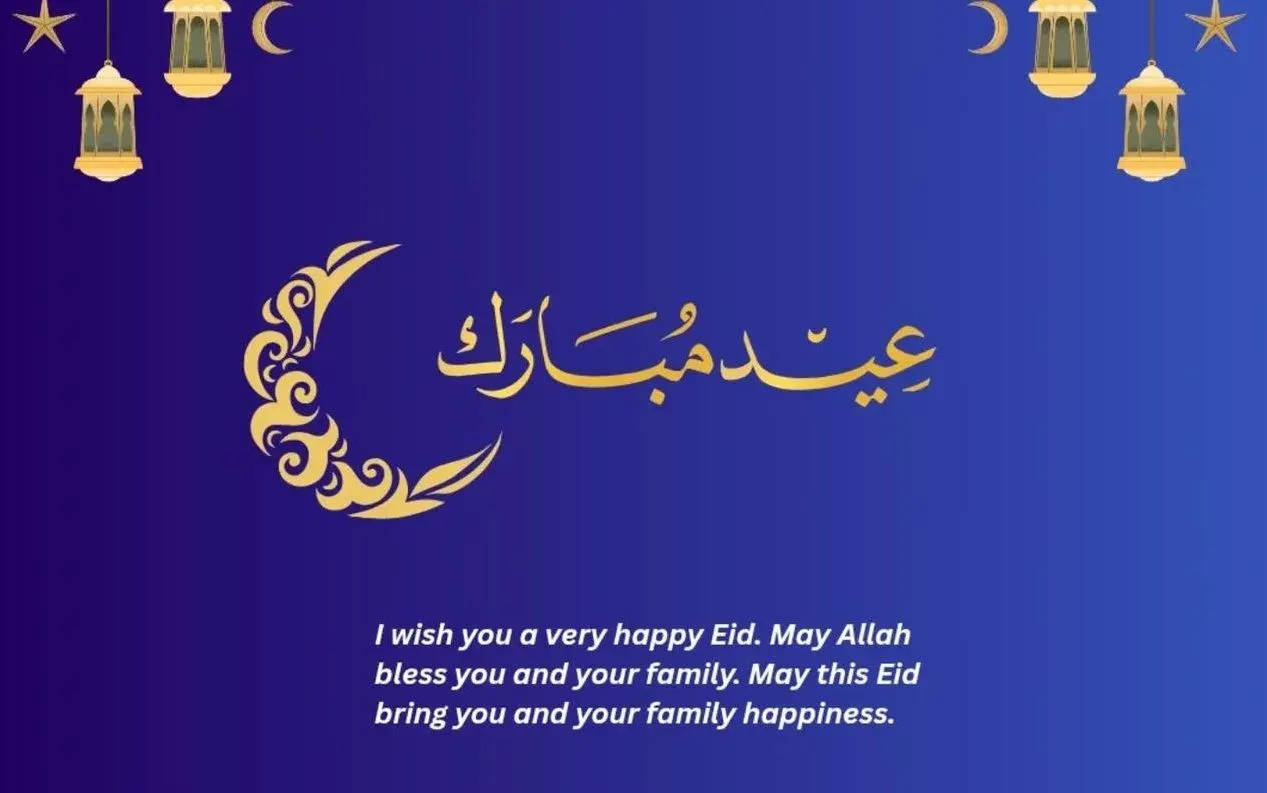Eid ul-Fitr, commonly known as the “Festival of Breaking the Fast,” is one of the most significant celebrations in the Islamic calendar. It marks the end of Ramadan, the month-long fasting period that holds profound spiritual importance for Muslims worldwide. In this blog, we will explore the history, significance, and various traditions associated with Eid ul-Fitr, as well as its connection to Ramadan and its role in the lives of millions of Muslims.
What is Eid ul-Fitr?
Eid ul-Fitr is a joyous occasion that celebrates the conclusion of Ramadan, the Islamic month of fasting, prayer, and reflection. This festival marks the end of 29 or 30 days of fasting from dawn till sunset, during which Muslims abstain from food, drink, and other physical needs as an act of spiritual discipline. Eid ul-Fitr falls on the first day of Shawwal, the month that follows Ramadan in the Islamic lunar calendar.
The day is filled with gratitude, prayers, family gatherings, and acts of charity. The primary purpose of Eid is to give thanks to Allah (God) for granting strength and patience during the month of fasting and for the opportunity to grow spiritually.
The History of Eid ul-Fitr
The history of Eid ul-Fitr dates back to the time of the Prophet Muhammad (PBUH), who is believed to have instituted the festival after the completion of the first Ramadan in 624 CE. According to Islamic tradition, when the Prophet and his followers completed their first Ramadan, they were instructed by Allah to observe a day of celebration. This day was to be marked by a communal prayer and the giving of charity, symbolizing the end of the month-long fast.
The term “Eid” comes from the Arabic word “‘Eid,” which means “festival” or “celebration,” while “Fitr” refers to “breaking the fast.” The celebration thus signifies not only the physical act of ending the fast but also the spiritual renewal and sense of achievement gained through the observance of Ramadan.
The Significance of Eid ul-Fitr
Eid ul-Fitr holds deep religious and social significance for Muslims across the globe. Here are some key reasons why the festival is so important:
1. Gratitude and Reflection:
Eid is a time for Muslims to express gratitude to Allah for the strength, patience, and perseverance shown during Ramadan. Fasting is not only about abstaining from food and drink but also from negative behaviors like gossip, anger, and sinful actions. Eid is a reflection of the self-purification achieved during the month of fasting.
2. A Reward for Spiritual Effort:
According to Islamic teachings, Ramadan is a time when the gates of mercy and forgiveness are open. Muslims believe that by fasting, praying, and seeking forgiveness from Allah, they receive spiritual rewards. Eid serves as a reward for all the efforts made throughout the month.
3. Charity (Zakat al-Fitr):
One of the essential elements of Eid is the giving of charity. Muslims are required to give “Zakat al-Fitr,” a form of alms, to help the less fortunate. This ensures that all members of the community, regardless of their financial situation, can partake in the celebrations. The act of giving charity reinforces the importance of empathy, solidarity, and helping others in Islam.
4. Unity and Brotherhood:
Eid brings Muslims together in a sense of unity, where people gather for prayers at the mosque or in open fields. It is a celebration that transcends national borders, uniting Muslims from various cultural backgrounds and creating a sense of global brotherhood and community.
Eid ul-Fitr and Ramadan: A Sacred Connection
Eid ul-Fitr cannot be understood without recognizing its deep connection to the holy month of Ramadan. Ramadan, the ninth month of the Islamic lunar calendar, is considered the holiest month for Muslims. It is believed to be the month in which the Quran was revealed to the Prophet Muhammad (PBUH), and Muslims observe fasting as a way to purify their hearts and minds.
During Ramadan, Muslims fast from dawn to sunset, refraining from food, drink, smoking, and marital relations. Fasting is seen as an opportunity to practice self-discipline, develop empathy for the less fortunate, and seek spiritual growth. Ramadan is also a time for increased prayer, including the Taraweeh prayers at night, and reading the Quran.
The end of Ramadan is marked by the sighting of the new moon, signaling the start of Shawwal and the arrival of Eid ul-Fitr. The connection between Ramadan and Eid is a symbolic representation of the spiritual journey from fasting and reflection to celebration, renewal, and gratitude.
How is Eid ul-Fitr Celebrated?
Eid ul-Fitr is celebrated with joy, feasts, and festivities. The way people celebrate may vary depending on their cultural background, but the core elements of the festival remain the same. Here are some common traditions:

1. Eid Prayer (Salat al-Eid):
The day begins with the special Eid prayer, performed in congregation. This prayer is usually offered in large open areas or mosques and consists of two units (rakats) along with a sermon. The prayer is an important communal activity, bringing together Muslims from all walks of life.
2. Wearing New Clothes:
On Eid, it is customary to wear new or finest clothes. This symbolizes the renewal of one’s spiritual state and the celebration of the end of the fasting period. Many people also adorn themselves with perfumes and accessories as a way of honoring the occasion.
3. Charity and Giving:
As mentioned earlier, the giving of charity is an essential part of Eid. Zakat al-Fitr is given before the Eid prayer to ensure that those who are less fortunate can also enjoy the festivities. Additionally, people exchange gifts, especially with children, as a sign of love and care.
4. Festive Meals:
After a month of fasting, food plays a central role in Eid celebrations. Families come together to share festive meals, often featuring a variety of traditional dishes. It is a time for feasting, enjoying delicacies, and strengthening family bonds.
5. Visiting Relatives and Neighbors:
Eid is also a time for visiting friends, family, and neighbors. Muslims often go to the homes of loved ones to exchange greetings and share meals. It is an occasion to reconnect, strengthen relationships, and foster a sense of community.
Global Celebrations of Eid ul-Fitr
Eid ul-Fitr is celebrated by Muslims around the world, from Indonesia to Morocco, Turkey to Pakistan, and beyond. While the core rituals are the same, the way in which Eid is celebrated can vary depending on local customs, traditions, and cultural practices. For example:
In Turkey, Eid is known as “Şeker Bayram,” or the “Sugar Festival,” and is marked by visiting relatives, offering sweets, and giving children pocket money.
In Indonesia, Eid is celebrated with “Lebaran,” where people often return to their hometowns to spend time with family and share traditional dishes like “ketupat” (rice wrapped in coconut leaves).
In Saudi Arabia, large public events are held, with special Eid prayers, feasts, and celebrations in major cities like Mecca and Medina.
Despite the different customs, the universal themes of gratitude, charity, and community are what make Eid a shared experience for Muslims worldwide.
Eid Greetings: A Tradition of Joy and Blessings
During Eid ul-Fitr, people greet each other with joyful and warm expressions, and the most common phrase used is “Eid Mubarak.” Here are some different ways people may say “Eid Mubarak” to each other, along with regional variations:
Common Eid Greetings:
1. Eid Mubarak (مبارك عيد) : This is the most widely used greeting, meaning “Blessed Eid” or “Happy Eid.”
2. Eid Sa’id (سعيد عيد) : A common greeting in Arabic, meaning “Happy Eid.”
3. Kul ‘am wa antum bi-khayr (بخير وأنتم عام كل) : This Arabic greeting translates to “May you be well every year,” and is often used during Eid and other celebrations.
4. Eid Kareem (كريم عيد) : Another greeting used in some Arabic-speaking regions, meaning “Generous Eid.”
5. Taqabbal Allahu minna wa minkum (ومنكم منا اللهتقبل) : This traditional Arabic greeting means “May Allah accept (the good deeds) from us and from you.”
Regional Variations:
- In Turkey: People often say “Bayramınız mübarek olsun,” which translates to “May your Eid be blessed.”
- In Indonesia and Malaysia: The greeting is often “Selamat Hari Raya,” meaning “Happy Eid Day,” or “Selamat Hari Raya Aidilfitri.”
- In Iran (Persian-speaking countries): “Eid-e Shoma Mobarak” (مبارک شما عيد) is commonly used.
- In Pakistan and India: People say “Eid Mubarak” or “Chand Raat Mubarak” (especially on the night before Eid).
- In Somalia: “Eid wanaagsan” means “Good Eid.”
- In USA and UK: People say “Eid Mubarak” or “Wishing you a joyful and blessed Eid”.
Other Warm Expressions:
- “May your Eid be filled with joy and blessings.”
- “Wishing you peace, prosperity, and happiness this Eid.”
- “May Allah’s blessings be with you and your family on this special day.”
- “Eid Mubarak to you and your loved ones!”
The way Eid is greeted may also vary based on personal relationships or local customs, but the spirit of the greeting remains one of love, joy, and unity.
Embracing the Blessings of Eid ul-Fitr
Eid ul-Fitr is not just a festival; it is a profound moment of spiritual renewal, community bonding, and thanksgiving for Muslims. It is the culmination of the sacred month of Ramadan, a time for fasting, reflection, and self-discipline. As Muslims come together to celebrate Eid, they also reaffirm their commitment to their faith, family, and community, ensuring that the essence of this blessed day lives on in their hearts and actions.
As families and friends gather to celebrate, share meals, and exchange blessings, Eid ul-Fitr also serves as an opportunity to foster compassion, support the less fortunate, and nurture meaningful relationships. The festival’s rich history, combined with its enduring cultural significance, makes Eid a time to appreciate the transformative journey of Ramadan and its impact on both the individual and collective spirit of the Muslim ummah.
In the end, Eid ul-Fitr is a celebration of faith, unity, and the enduring power of kindness and generosity.






